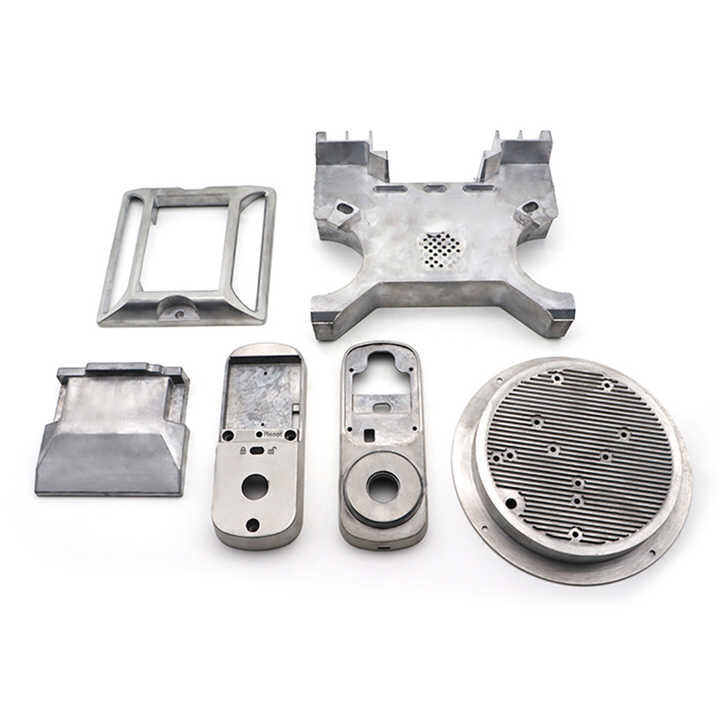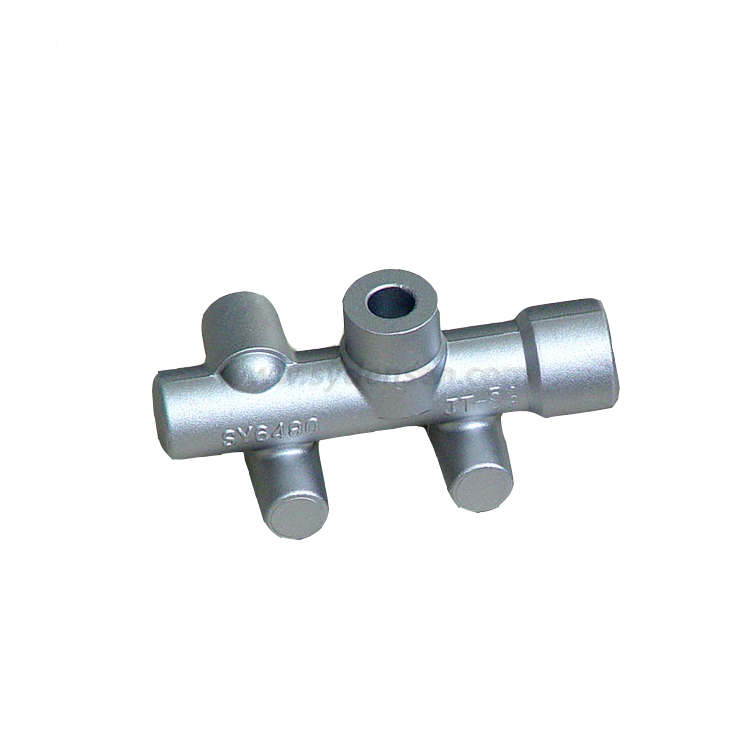Aluminum casting methods that advance product development
Wiki Article
Exactly How Shop Provider Enhance Production Efficiency and High Quality in Industrial Applications
Shop solutions play an essential function in enhancing production performance and quality throughout various industrial applications. By carrying out innovative metal casting methods, these services ensure parts are manufactured with precision and consistency. This not only decreases lead times yet additionally decreases waste, fostering better collaboration between foundries and producers. The effect of high-grade parts on functional performance raises essential questions about the future of industrial manufacturing. What technologies exist in advance in this progressing landscape?The Function of Factory Services in Streamlining Manufacturing Processes

Furthermore, factories often supply knowledge in alloy growth, enabling producers to make use of advanced materials that boost product performance. The collaboration between manufacturers and factories cultivates a far better understanding of production requirements, bring about enhanced procedures and improved item layouts. By leveraging shop solutions, suppliers can attain greater flexibility, adapt to altering market needs, and maintain competitiveness in the market. Generally, the role of shop solutions is crucial in promoting a much more cost-efficient and efficient manufacturing landscape.
Advanced Technologies in Foundry Workflow
Innovative innovations are changing shop procedures, markedly enhancing efficiency and accuracy. Automation plays a vital function, with robotic systems streamlining repeated tasks such as molding and material handling. In addition, innovations in computer-aided style (CAD) and computer-aided manufacturing (WEB CAM) systems make it possible for factories to create intricate geometries with higher accuracy and lowered product waste.The integration of man-made intelligence (AI) and maker learning boosts top quality control by checking processes in real-time and forecasting possible problems before they happen. Making use of advanced products, such as light-weight alloys and composites, further boosts the performance features of cast items.
3D printing technology is reinventing prototyping and tooling, allowing for fast modification and reduced lead times. Collectively, these innovative modern technologies not only elevate production effectiveness yet also guarantee that the final items satisfy rigorous top quality standards, positioning foundries at the leading edge of contemporary industrial applications.
Lowering Lead Times Via Reliable Foundry Practices
Efficient foundry practices play a necessary duty in decreasing preparations within production environments. By implementing streamlined production procedures and progressed organizing strategies, manufacturers can improve operations and maximize resource allocation. These enhancements not only accelerate result yet additionally add to general operational effectiveness.Streamlined Production Procedures
Enhancing manufacturing processes is vital for decreasing lead times in the manufacturing field. Reliable factory practices, including maximized operations and resource management, play a vital function in attaining this goal. By reducing waste and enhancing communication among teams, foundries can substantially improve their operational efficiency. The implementation of standardized treatments additionally adds to regular quality and faster turnaround times, allowing manufacturers to react more quickly to market demands. In addition, the combination of advanced modern technologies, such as automation and real-time tracking systems, helps in identifying traffic jams and promoting timely treatments. In general, a focus on structured manufacturing processes not just accelerates preparations but additionally enhances the general competition of industrial applications, making sure that items satisfy client expectations properly.Advanced Scheduling Techniques
Effective production procedures normally lead producers to discover advanced scheduling strategies as a way to additionally lower lead times. By utilizing innovative formulas and software, factories can maximize operations, aligning production routines with need projections and resource accessibility. Methods such as Just-In-Time (JIT) organizing decrease inventory costs while guaranteeing prompt product distribution, therefore enhancing operational effectiveness. In addition, incorporating real-time data analytics enables factories to prepare for possible delays and adjust schedules proactively. This adaptability not only simplifies operations but also increases general efficiency. Moreover, joint preparation with vendors and consumers can promote a much more synchronized supply chain, additional decreasing lead times. Ultimately, these sophisticated scheduling techniques encourage shops to accomplish higher efficiency and superior top quality in their production procedures.Making Certain Accuracy and High Quality in Metal Spreading
Ensuring precision and top quality in steel casting calls for a careful method that encompasses every phase of the production process. This procedure begins with mindful style and engineering of the mold and mildews, guaranteeing they can withstand the liquified metal's temperature level and pressure. The option of high-grade resources is essential, as pollutants can compromise the last product.As soon as the materials are prepared, precise temperature level control during melting and putting is fundamental to attain the desired homes in the actors metal. Monitoring solidification and air conditioning rates more guarantees dimensional accuracy and surface area coating.
Quality assurance methods, such as non-destructive screening and inspection, are crucial to determining problems early while doing so. Precision aluminum casting. Furthermore, utilizing skilled workers that recognize the subtleties of metal spreading adds considerably to keeping high standards. In general, these methods jointly improve the dependability and efficiency of cast components in various commercial applications
Decreasing Waste and Maximizing Resource Use

In addition, Aluminum Foundry recycling scrap steel within the shop itself can substantially decrease waste, transforming spin-offs right into useful sources. Lean making principles likewise contribute to throw away reduction by improving procedures and removing unneeded steps, leading to extra reliable procedures.
Additionally, normal upkeep of tools warranties peak efficiency, protecting against malfunctions that can cause squandered materials. By concentrating on these strategies, shops not just minimize expenses however likewise add to sustainable techniques, aligning with the expanding need for environmentally responsible manufacturing approaches in commercial applications.
The Competitive Benefit of High-Quality Elements in the Market
Premium elements offer a significant competitive advantage in the foundry market, where precision and resilience are paramount. Suppliers that focus on remarkable materials and craftsmanship can improve product performance and integrity, bring about boosted customer satisfaction. This benefit is particularly evident in sectors such as vehicle and aerospace, where part failure can have catastrophic effects.Top quality components often result in lower maintenance costs and extended product life-spans, which can be enticing selling factors for potential clients. As market needs grow for effective and sustainable innovations, the emphasis on quality becomes much more vital. Business that purchase top quality factory services not only improve their manufacturing procedures but additionally distinguish themselves from rivals that may give up top quality for cost financial savings. Subsequently, the commitment to top quality parts ultimately equates right into a stronger market setting and long-term service success.
Frequently Asked Inquiries
What Kinds of Materials Do Foundry Services Commonly Work With?
Factory solutions typically work with metals such as aluminum, steel, iron, and brass, along with numerous alloys. They additionally deal with products like composites and ceramics, providing to varied industrial demands and requirements in producing procedures.Just How Do Factory Services Influence Overall Supply Chain Administration?
Factory solutions considerably improve supply chain management by improving material sourcing, reducing lead times, and making sure consistent top quality. Their capability to offer customized options fosters partnership amongst stakeholders, inevitably enhancing general functional effectiveness and responsiveness in production.What Industries Benefit Most From Foundry Providers?
Industries such as automobile, aerospace, consumer, and building and construction items significantly take advantage of shop solutions. These industries rely upon precision spreadings to meet rigid high quality standards and improve their total manufacturing processes and item efficiency.Are Shop Services Eco pleasant and sustainable?
Foundry solutions can be environmentally pleasant and lasting, particularly when utilizing innovative technologies and procedures - Precision aluminum casting. Developments such as recycling materials, decreasing emissions, and maximizing power use contribute to minimizing their ecological influence in commercial applications
How Can Firms Choose the Right Factory Company?
Firms can choose the right shop solution company by reviewing proficiency, production capacities, top quality accreditations, modern technology utilized, customer evaluations, and sustainability techniques while making sure placement with their specific job requirements and lasting organization objectives.Shop solutions play a crucial role in enhancing manufacturing efficiency and top quality throughout different commercial applications. The collaboration between factories and makers fosters a far better understanding of manufacturing requirements, leading to maximized processes and boosted product designs. Effective factory techniques play a crucial duty in reducing lead times within manufacturing environments. By using sophisticated formulas and software application, factories can maximize workflows, lining up production routines with demand forecasts and resource availability. Business that spend in high-grade foundry services not only boost their production processes however additionally differentiate themselves from rivals who may compromise quality for expense savings.
Report this wiki page